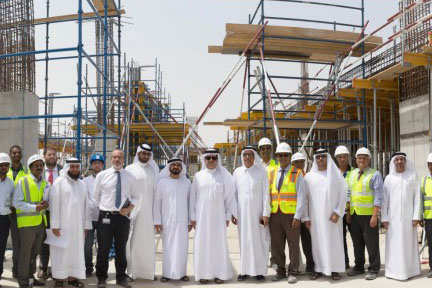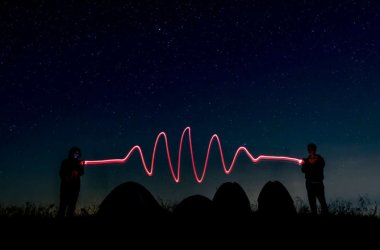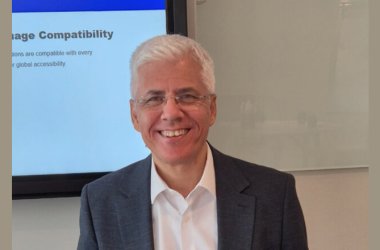
The senior management of Dubai Electricity and Water Authority (DEWA) have been encouraged by the progress in technology adoption at its research and development centre at the Mohammed bin Rashid Al Maktoum Solar Park, in Seih Al-Dahal, Dubai.
Saeed Mohammed Al Tayer, MD & CEO, DEWA, was briefed on the progress of the R&D centre by representatives from Stantec International, the consulting company responsible for design and construction of the centre, as well as representatives from Reem Capital Contracting.
The R&D Centre aims to be on the cutting edge of scientific and research developments in the field of renewable energy, and will support the objectives of the Dubai Clean Energy Strategy 2050 to diversify energy sources and enhance energy efficiency.
Al Tayer stressed the need to adhere to the highest standards of security, health and safety, and the importance that technology will play in building a futuristic facility that can contribute to the UAE’s ambitions of building an R&D-driven nation.
“The centre will contribute to strengthening Dubai’s position as a global hub for research and development in the field of solar energy, smart grids, and energy and water efficiency,” he said. “It will also enhance capacity building in these sectors to enable Dubai to meet the requirements of sustainable development in the emirate. We aim to create a platform for innovation and creativity in renewable energy and clean technologies.”
The R&D Centre was launched in 2014, and will focus on producing electricity using solar energy, and the integration of smart grids, energy efficiency, and water. A total of AED 500 million is being dedicated towards R&D and the centre is scheduled to be ready in 2020.
The centre’s infrastructure includes indoor laboratories – built with 3D printing technology – to study and test the reliability of systems, while the outdoor laboratories will conduct field tests of techniques and tools, which include studies on mitigating the effects of dust on the performance of solar panels.
The centre will also include unmanned aerial vehicles (UAVs).
DEWA is studying the possibility of using 3D-printing technology in the development of spare parts to improve the performance of UAVs, based on artificial intelligence in the maintenance and operations in its work.
“The Centre aims to support DEWA’s vision to promote sustainability in energy supply, diversify energy sources, and create a business environment that encourages innovation,” Al Tayer added. “It also aims to support Dubai’s strategy to build a knowledge-based economy by improving efficiency standards and supporting renewable energy initiatives, especially the solar energy and related initiatives and activities.”
DEWA is studying the possibility of utilising AI to promote a culture innovation and creativity, in cooperation with prestigious research centres and universities around the world.
DEWA has signed agreements with several national entities, institutions, and companies, including the National Renewable Energy Laboratory of the US Department of Energy, and the Spanish National Renewable Energy Centre for R&D.
DEWA is also collaborating with the United Arab Emirates University (UAEU), and Khalifa University, in the field of joint research and studies in renewable energy.





